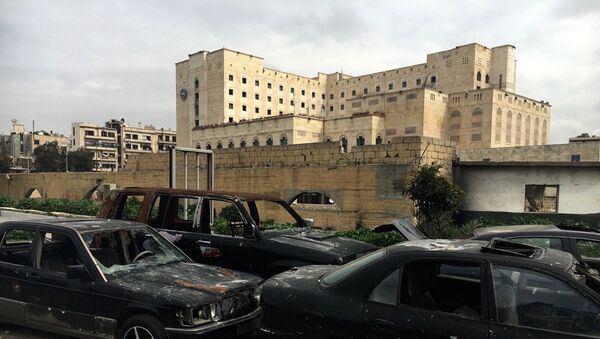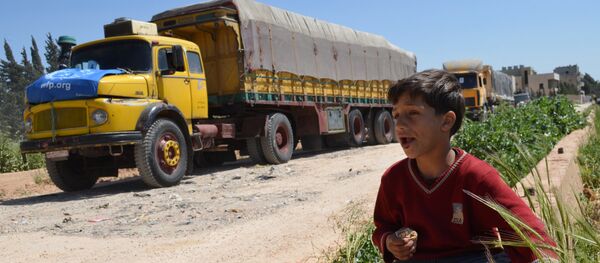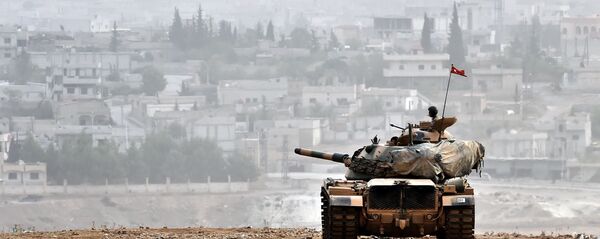WASHINGTON (Sputnik) – The Joint Declaration of the United States and Russia to push for a full ceasefire suggests the nearly five-year civil war in Syria might be coming to an end at last, former UN human rights representative and Global Policy Forum Director James Paul told Sputnik.
"The terrible Syrian war may, in fact, be entering its end-game," Paul said on Monday. "The ceasefire being brokered by Washington and Moscow is looking like it will actually take hold."
Syrian Kurdish Peshmerga forces that have been fighting the Islamic State, also known as Daesh, which is outlawed in Russia, the United States and other countries, played a significant role in bringing the ceasefire about despite facing increasing hostility from Turkey, Paul pointed out.
"Through commitment to a democratic and non-sectarian future, the Kurds have strengthened the leverage of the responsible political forces in the country – those who want to see an end to the authoritarian rule of the Assad family and want also to rid the country of the sectarian jihadis," he said.
"Turkey’s recent artillery attacks on Kurdish forces in the north of Syria adds a further complexity to this very complex civil war that involves many foreign powers with different and conflicting interests, causing so much death and destruction in Syria," he continued.
The Kurdish dimension of the conflict is confusing because the Kurds are part of a population group spread between four countries: Syria, Turkey, Iraq and Iran, Paul recalled.
"Since the beginning of the rebellion in Syria in late 2011, Syrian Kurds have taken military control of Syrian Kurdistan. They have an effective fighting force that has received arms (and limited training) from Western powers for more than a year as part of the ‘war’ against Daesh, the Islamic State," he said.
Turkish President Recep Tayyip Erdogan heightened tension with the Kurds on both sides of the boarder by backing the Islamic jihadist rebels in Syria, beginning in late 2011, and by allowing them to bring in arms and fighters through the Turkey-Syria border, Paul recollected.
"Consequently, there have been many clashes between the Islamic rebels and the Kurdish peshmerga fighters in northern Syria," Paul added.
Recently in Turkey, to increase his popularity and attract more votes to his right-wing, nationalist, Islamic bloc, President Erdogan "began fierce repression against the Turkish Kurds, in what has become an escalation of violence, weakening the Turkish state and creating turmoil within it," Paul said.
James Paul served as GPF Executive Director from its foundation in late 1993 through the end of 2012 and was the representative to the International Federation of Human Rights at the UN. He has received the World Hunger Media Award and a "Peacemaker" award from the Nuclear Age Peace Foundation.




